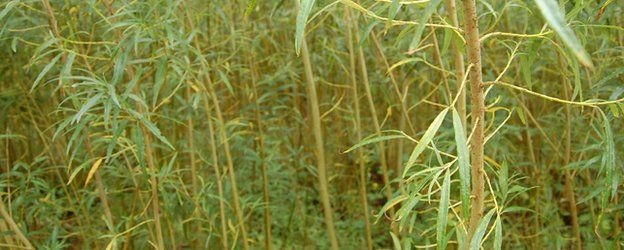Bioenergy can deliver cleaner future, says global report
- Published

A global bioenergy assessment has said biofuels could meet up to a third of the world's transportation fuel needs by the middle of the century.
The report - involving experts from 24 nations - said bioenergy had the potential to be a key driver in delivering a low-carbon future.
It added that concerns that growth in the sector would increase food insecurities were misplaced.
The details were outlined in Brussels as part of EU Sustainable Energy Week.
The report, Bioenergy and Sustainability, was led by researchers from the Sao Paulo Research Foundation, Brazil.
The authors said: "Bioenergy derived from plants can play an essential role in satisfying the world's growing energy demand, mitigating climate change, sustainably feeding a growing population, improving socio-economic equity, minimising ecological disruption and preserving biodiversity."
Energy definitions
•Biomass - biological material that can be used as a fuel or for industrial production, such as wood, plant or animal products
•Bioenergy - energy generated by combusting solid, liquid or gas fuels made from biomass feedstocks
(Source: UK Bioenergy Strategy)
The 779-page study considered the current bioenergy landscape, technologies and practices and considered their social, economic and environmental impacts.
The publication looked at liquid biofuels, bioelectricity and heat, and biogas. It also considered areas such as energy security, food security as well as climate and environmental security.
"The resources and technologies are within our reach but achieving the critical contributions needed from modern bioenergy call for political and individual will," the authors observed.
Close scrutiny
Although it was once hailed by politicians and environmentalists as the green alternative to fossil fuels, bioenergy - particularly biofuels - has come under close scrutiny in recent years.
Questions have been raised about the level of greenhouse gas savings it delivered, especially when rainforests were being felled to allow biofuel crops to be planted instead.
Concerns were also raised about food security as people asked whether it was more profitable to plant energy crops rather than food crops on arable land.
This was reflected at a policy-making level. In 2012, the EU changed its policy on biofuels, encouraging production from waste materials rather than from food crops. It imposed a 5% cap on food-based biofuel allowed to be used in transportation fuel.
In the same year, the UN called for a renewed debate on the merits and impacts of biofuels and the CEO of a global food producer said that the growth in the global biofuels sector was increasing food prices.
However, the assessment published on Wednesday in Brussels challenged this assertion by suggesting that modern bioenergy could "help improve food security by optimising land productivity and agricultural management".
It added: "About 70-80% of food insecurity problems occur in rural [areas] where energy insecurity or energy poverty are also concentrated."
"Bioenergy can be a driver to transform the way we use resources and land," it concluded.
"Inefficiently used land, extensive pastures, degraded lands and excess agricultural capacity and residues can be used for energy production and to bring added value and resilience into agricultural economies and human wellbeing."
- Published18 October 2012
- Published8 June 2015
- Published17 October 2012
- Published4 June 2008